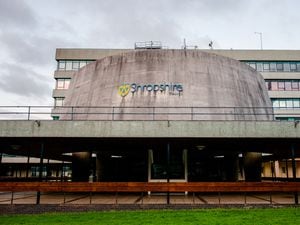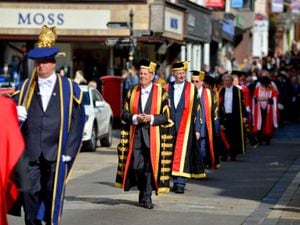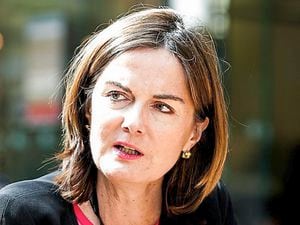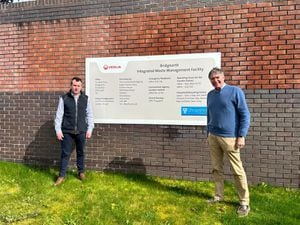Revealed: BBC licence changes will hit thousands of pensioners in Shropshire
Tens of thousands of pensioner households in Shropshire are set to lose their automatic entitlement to free TV licences from next year.
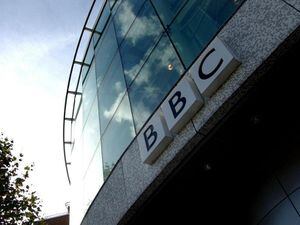
The BBC yesterday announced that free licenses for over-75s will be means tested from June 2020, in a controversial move which has drawn criticism from campaigners.
Office for National Statistics data estimates that in 2016 there were 23,774 households in Shropshire, and 8,683 in Telford and Wrekin with at least one resident aged 75 or older.
Households without anyone who receives Pension Credit will have to pay for a TV license under the new policy.
Age UK's Shropshire Telford & Wrekin branch has warned that the changes will hit poor pensioners the hardest.
Heather Osborne, chief executive of the group said: ‘This decision will affect thousands of older people in Shropshire who are already struggling financially. Means-testing may sound fair but in reality another expense is something that many older people simply cannot afford.
"We are aware that many older people are having to make choices in terms of paying for their heating or food bills, the TV provides companionship for lots of older people and taking this away will impact on their quality of life.’
It is thought that around 3.7 million households across the UK will now have to pay the fee, with around 1.5 million eligible for a free license under the new scheme.
The provision of free TV licences for the over 75s was introduced in 1999 by the then Labour chancellor, Gordon Brown. Under the agreement the cost was met by the government.
This was changed in 2015 when Conservative chancellor George Osborne, agreed a deal under where the BBC would instead paying for the cost of the free licences.
BBC director-general Tony Hall said that the move was "not an easy decision", but argued that the policy was fair.
He said: "Whilst we know that pensioner incomes have improved since 2000, we also know that for some the TV licence is a lot of money.
"It would not be right simply to abolish all free licences. Equally, it would not be right to maintain it in perpetuity given the very profound impact that would have on many BBC services.
Shift
"And importantly, it is not the BBC making that judgment about poverty - it is the government who sets and controls that measure."
The corporation was due to take over the cost of free TV licences as part of its new charter agreement which commenced in 2017.
The shift from government to the broadcaster was being phased in, with sole responsibility set to begin from 2020, when it was estimated to be due to cost the BBC around £725 million.
Pensioners had protested at the possibility of the concession being scrapped, and concerns were raised by some MPs over removing the free licence.
Shadow culture secretary and deputy Labour leader Tom Watson accused the Government of trying to "means test for loneliness".
"It is an outrage that this Government is overseeing the scrapping of free TV licences for three million older people, leaving a Tory manifesto promise in tatters.
"In the same week that Boris Johnson has championed tax cuts for the richest 8%, his Government has delivered yet another ruthless welfare cut to some of the most vulnerable people in our society.
"Millions of elderly and isolated people will lose because of this announcement - Labour will fight it with everything we've got."
Age UK's national director, Caroline Abrahams, echoed the comments of the local branch, saying: "Make no mistake, if this scheme goes ahead we are going to see sick and disabled people in their eighties and nineties who are completely dependent on their cherished TV for companionship and news, forced to give it up."
"Means-testing may sound fair, but in reality it means at least 650,000 of our poorest pensioners facing a big new annual bill they simply can't afford, because, though eligible for Pension Credit, they don't actually get it.
"The BBC's decision will cause those affected enormous anxiety and distress, and some anger too, but in the end this is the Government's fault, not the BBC's.
"It is open to a new prime minister to intervene and save the day for some of the most vulnerable older people in our society, who will otherwise suffer a big blow to their pockets and to their quality of life."

